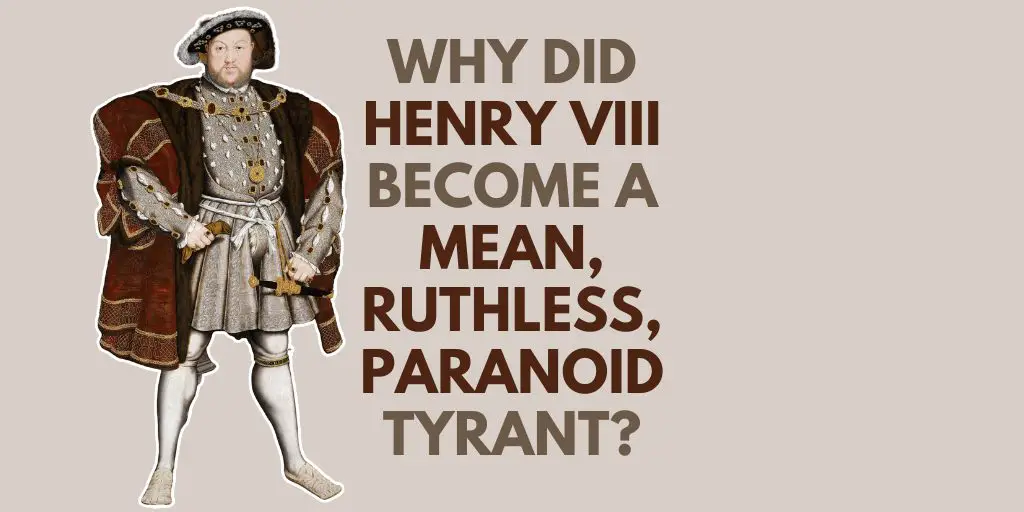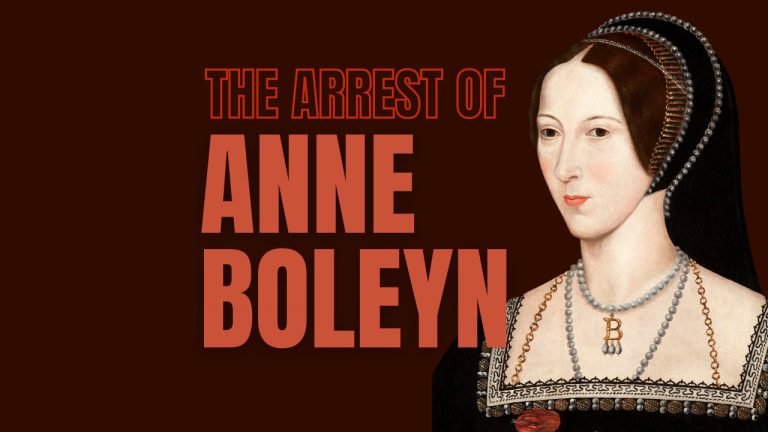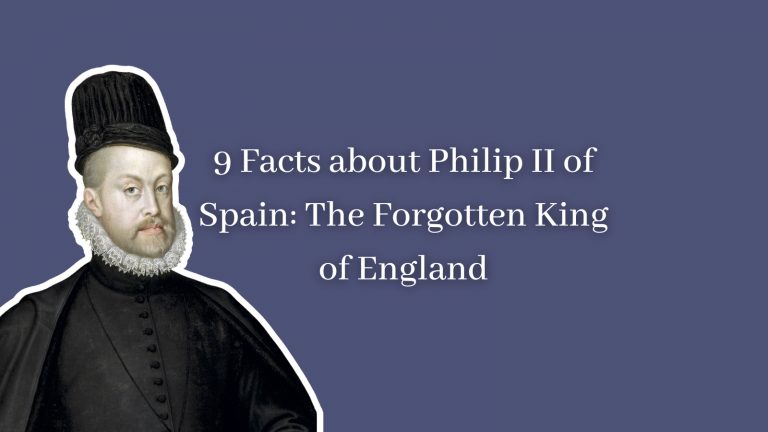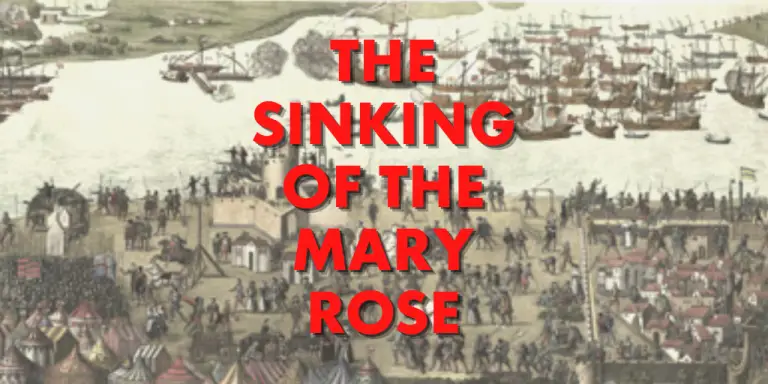Why did Henry VIII become a mean, paranoid tyrant?
[et_pb_section fb_built=”1″ _builder_version=”4.7.7″ _module_preset=”default” custom_padding=”0px|||||”][et_pb_row _builder_version=”4.7.7″ _module_preset=”default”][et_pb_column type=”4_4″ _builder_version=”4.7.7″ _module_preset=”default”][et_pb_text _builder_version=”4.7.7″ _module_preset=”default” hover_enabled=”0″ sticky_enabled=”0″]
When the seventeen-year-old Henry VIII succeeded his father, the country celebrated.
Henry VIII’s father, Henry VII, ran the country with an iron fist, particularly when it came to money. He demanded loyalty and enforced it with a system of fines. The new young king was seen as a breath of fresh air.
Henry was tall, athletic and handsome and had a beautiful Spanish bride at his side. He was fun, courteous and generous to many of his subjects. He was intelligent and gifted in music and arts and showed great interest in science, engineering, and medicine.
When he and Catherine of Aragon were crowned, the people of London lined the streets ten deep as the procession went by. As they walked up the carpet to Westminster Abbey, the public rushed to tear strips off.
Henry VIII offered people new hope.
Lord Mountjoy said about him, ‘Our king does not desire gold or gems or precious metals, but virtue, glory, immortality.”
So what happened? How did Henry go from fun, affable and generous to beheading wives, executing loyal servants and quartering aged abbots outside their monastery doors?
How did a “virtuous prince” turn into the ruthless tyrant that we all remember?
[/et_pb_text][/et_pb_column][/et_pb_row][et_pb_row _builder_version=”4.7.7″ _module_preset=”default”][et_pb_column type=”4_4″ _builder_version=”4.7.7″ _module_preset=”default”][et_pb_text _builder_version=”4.7.7″ _module_preset=”default”]
Henry VIII’s final jousting accident of 1536
[/et_pb_text][/et_pb_column][/et_pb_row][et_pb_row _builder_version=”4.7.7″ _module_preset=”default”][et_pb_column type=”4_4″ _builder_version=”4.7.7″ _module_preset=”default”][et_pb_text _builder_version=”4.7.7″ _module_preset=”default” hover_enabled=”0″ sticky_enabled=”0″]
Historians often quote Henry’s jousting accident of 1536 as the point at which his personality changed. He suffered a massive head trauma that left him unconscious for several hours and obviously had none of the medical care we would expect today.
It was a case of making him comfortable…and pray.
Henry survived, but his health was destroyed, both physically and mentally.
The once active sportsman could no longer exercise the way they had done previously. However, his ravenous appetite didn’t decrease.
There was one very noticeable consequence – his waistline.
However, the change in circumstances and the frustration that he was no longer the man he was would have played a significant role in his mental decline. When you couple that with the potential for the head trauma to make considerable personality changes and the traumatic events of 1536, you can almost see Henry changing in front of your eyes.
You can read more about Henry’s infamous jousting accident in our article by clicking here.
However, the seeds of his personality change were sowed.
Bishop Fisher and Thomas Moore had been ruthlessly executed the year before. The decision to send them to the block could not have been blamed on the jousting accident. The seeds of his personality change were sowed long before the lance struck his head for the last time.
[/et_pb_text][/et_pb_column][/et_pb_row][et_pb_row _builder_version=”4.7.7″ _module_preset=”default”][et_pb_column type=”4_4″ _builder_version=”4.7.7″ _module_preset=”default”][et_pb_text _builder_version=”4.7.7″ _module_preset=”default”]
An indulged prince
[/et_pb_text][/et_pb_column][/et_pb_row][et_pb_row _builder_version=”4.7.7″ _module_preset=”default”][et_pb_column type=”4_4″ _builder_version=”4.7.7″ _module_preset=”default”][et_pb_text _builder_version=”4.7.7″ _module_preset=”default” hover_enabled=”0″ sticky_enabled=”0″]
Henry VIII wasn’t used to the word no.
It wasn’t something that people had ever said to him.
He was the indulged prince who always got what he wanted. He was used to be the centre of attention. He was brought up with his sisters, and as his elder brother Arthur was educated elsewhere, everything revolved around Henry.
We can see it in the portrait where Thomas More and Erasmus visit the royal nursery. Henry is at the centre of everything. More is on his knees, humbly offering the young boy a book.
At the wedding of Arthur and Catherine of Aragon, he took off his doublet. He danced on top of the tables as his father and mother looked on in adoration.
Then Arthur died, and things changed. His father was left with just one son – Henry. Henry VII would do everything he could to protect him.
Matters changed further when his mother Elizabeth of York died when Henry was 11.
Henry VII turned into the controlling, dominant father. He made his young son sleep in the same bedchamber to ensure he was protected at night. He refused him permission to joust as he got older, considering the sport too dangerous.
Matters changed again when Henry VII died. At just seventeen years of age, the new Henry VIII was once more the centre of attention.
Now that his father was gone, the situation was similar to when Henry was a young child – no one said no.
[/et_pb_text][/et_pb_column][/et_pb_row][et_pb_row _builder_version=”4.7.7″ _module_preset=”default”][et_pb_column type=”4_4″ _builder_version=”4.7.7″ _module_preset=”default”][et_pb_text _builder_version=”4.7.7″ _module_preset=”default”]
Obedience of a Christian Man
[/et_pb_text][/et_pb_column][/et_pb_row][et_pb_row _builder_version=”4.7.7″ _module_preset=”default”][et_pb_column type=”4_4″ _builder_version=”4.7.7″ _module_preset=”default”][et_pb_text _builder_version=”4.7.7″ _module_preset=”default” hover_enabled=”0″ sticky_enabled=”0″]
When Anne Boleyn presented Henry with a copy of Tyndale’s “The Obedience of a Christian Man”, she probably didn’t understand the impact it would have on him.
It was the start of what people have described as Henry VIII’s “God Complex.” Tyndale’s ideas lead Henry to break from Rome and declaring himself Supreme Head of the Church of England.
Henry VIII believed that God spoke to him.
We don’t know what was discussed between King and God, but Henry certainly believed that he was the only one qualified to decide how his subjects worshipped.
The cover page of Henry VIII’s Great Bible placed in every parish church in the country summed up the king’s opinion. Henry was there at the very centre of things, handing out the word to God to Cranmer and Cromwell, who in turn were passing it down to the masses.
Interestingly, just squeezed in at the very top of the image – is God himself, far smaller and less significant than Henry!
Unfortunately, for the first time, not everyone indulged Henry.
People began saying no.
Numerous monks, Bishop Fisher and Henry’s old friend and trusted councillor, Thomas More.
His wife of twenty years had already said no when he asked her for a divorce.
Henry was experiencing a strange new world. People didn’t say no to him. He didn’t understand how to respond.
The executioner started sharpening his axe.
[/et_pb_text][/et_pb_column][/et_pb_row][et_pb_row _builder_version=”4.7.7″ _module_preset=”default”][et_pb_column type=”4_4″ _builder_version=”4.7.7″ _module_preset=”default”][et_pb_text _builder_version=”4.7.7″ _module_preset=”default”]
Henry VIII’s Mid-Life Crisis
[/et_pb_text][/et_pb_column][/et_pb_row][et_pb_row _builder_version=”4.7.7″ _module_preset=”default”][et_pb_column type=”4_4″ _builder_version=”4.7.7″ _module_preset=”default”][et_pb_text _builder_version=”4.7.7″ _module_preset=”default” hover_enabled=”0″ sticky_enabled=”0″]
Henry was approaching forty and still didn’t have his heir. His wife was older than him, and her body was ravaged by six pregnancies.
Henry probably questioned everything. He was the most powerful man in the world – and yet he didn’t have a male heir.
He had the realisation that he was getting older and he hadn’t achieved the most basic of tasks for a king.
The early signs of depression were likely starting to appear.
His chase of the younger Anne Boleyn was the start of a classic mid-life crisis.
[/et_pb_text][/et_pb_column][/et_pb_row][et_pb_row _builder_version=”4.7.7″ _module_preset=”default”][et_pb_column type=”4_4″ _builder_version=”4.7.7″ _module_preset=”default”][et_pb_text _builder_version=”4.7.7″ _module_preset=”default”]
How the events of 1536 altered Henry’s reality
[/et_pb_text][/et_pb_column][/et_pb_row][et_pb_row _builder_version=”4.7.7″ _module_preset=”default”][et_pb_column type=”4_4″ _builder_version=”4.7.7″ _module_preset=”default”][et_pb_text _builder_version=”4.7.7″ _module_preset=”default” hover_enabled=”0″ sticky_enabled=”0″]
Anne Boleyn had failed to deliver Henry the son and heir that she had promised.
It was again as though someone had refused him.
Catherine of Aragon finally died in almost squalid conditions after being abandoned and ostracised after refusing to accept he was never married to Henry in the eyes of God. The daughter that adored, Mary, also refused to accept Henry’s ruling on the matter. They didn’t speak for several years.
His long-trusted minister Cardinal Wolsey was dead after falling from power for his failure to secure a divorce from Catherine of Aragon.
Then Henry suffered his jousting accident. After then, he was in pain regularly. He was robbed of the outlets he had for stress and mental health in terms of exercise.
Anne miscarried a male child shortly after the jousting accident. He perceived it as another “rejection.”
Then came Anne’s fall. Yes, we know it was engineered, but there was plenty of public humiliation for Henry. His wife had slept with five other men, and his sexual prowess was questioned in public court.
Never before had a queen of England been executed. It was a seismic event.
Within days Henry had remarried.
By the end of the year, the north had risen up in rebellion in the greatest threat to Henry’s reign. He saw it as yet another betrayal.
When it was over, hundreds were executed in a warning.
He was a virtuous prince no more.
[/et_pb_text][/et_pb_column][/et_pb_row][et_pb_row _builder_version=”4.7.7″ _module_preset=”default”][et_pb_column type=”4_4″ _builder_version=”4.7.7″ _module_preset=”default”][et_pb_text _builder_version=”4.7.7″ _module_preset=”default”]
Henry’s final years and descent into tyranny
[/et_pb_text][/et_pb_column][/et_pb_row][et_pb_row _builder_version=”4.7.7″ _module_preset=”default”][et_pb_column type=”4_4″ _builder_version=”4.7.7″ _module_preset=”default”][et_pb_text _builder_version=”4.7.7″ _module_preset=”default” hover_enabled=”0″ sticky_enabled=”0″]
As he approached his final years, Henry was ever more depressed. He had a growing sense of paranoia. As king, it is easy to see how he believed everyone was conspiring against him. History told him that kings were never secure on the throne, and there was always someone trying to take it from him.
Cromwell fell because Henry didn’t the match he had pushed for with Anne of Cleves. After Cromwell’s execution, he turned on the leading nobles who he believed manipulated him to deposed of the minister.
His depression fuelled his eating. His expanding girth only made his health worse and made him more depressed.
His marriage to Catherine Howard humiliated him further.
Then he had to deal with the warring factions at court, the religious reformers versus the traditionalists.
As his depression grew and his health faltered, his mood swings worsened.
He agreed to the arrest of his final wife and suspicion of heresy, only to recant the warrant and hurl abuse at the Lord Chancellor when he tried to present it.
Vengeance was handed out swiftly and without mercy for those he believed had slighted him. The mighty Howard’s were arrested, with the Earl of Surrey being executed on Tower Hill.
When Henry finally died peacefully in bed, he did so, not as a victorious prince but as the mean tyrant that we remember.
The question we should ask ourselves can we understand and even sympathise with the reasons that this happened?
[/et_pb_text][/et_pb_column][/et_pb_row][/et_pb_section]






